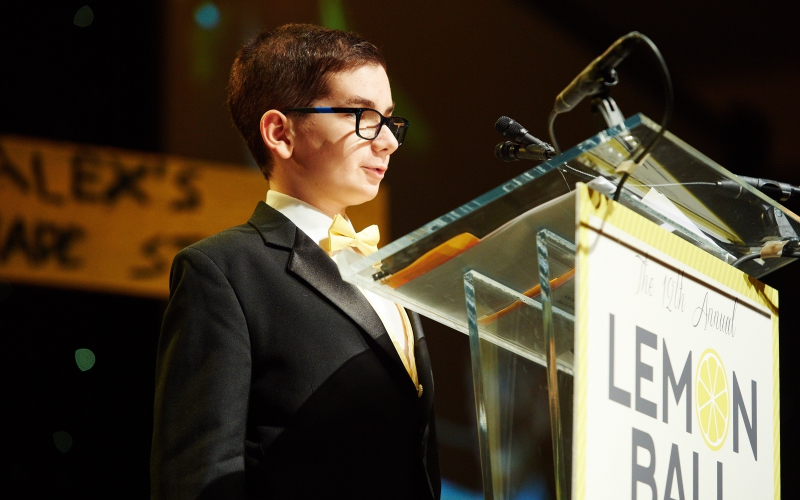
Childhood cancer survivors like Tony, pictured above, have to be monitored for possible cardiac health side effects due to treatment.
Childhood cancer survivors are 7 times more likely to experience cardiac dysfunction at some point in their lives than other children. Harsh treatments from some types of high-dose chemotherapy and radiation therapy increase their risk of having an irregular heartbeat, weakening the heart muscle and even hardening of the arteries.
This is one of the many reasons why childhood cancer research is so important—cures should not come at the cost of heart health.
The good news: researchers are working every day to finder safer treatments that not only cure cancer but also leave children without devastating side effects. As science works towards this goal, here are 10 things you need to know about heart health and childhood cancer:
- Several types of treatment can put survivors at risk for cardiac dysfunction including a type of chemotherapy called anthracycline, radiation to the spine, torso or chest and high doses of a drug given in preparation for stem cell transplants. These therapies are used to treat a variety of cancers including leukemia, lymphoma, sarcomas, solid cell tumors and brain tumors.
- Since the danger of long-term side effects increases with every dose and each treatment—oncologists will sometimes use another drug in conjunction with chemotherapy and radiation to protect the heart.
- The younger the child is when treated, the more at risk for cardiac side effects. Children younger than 2 years old are at the highest risk.
- The damage caused by treatment can directly affect the heart muscle, leading to a condition called cardiomyopathy. Cardiomyopathy means the heart muscles cannot pump as well and if left untreated could lead to heart failure.
- Radiation can cause a specific type of cardiomyopathy called restrictive cardiomyopathy—which means the heart muscle is not just weak, it is stiff and cannot adequately fill with blood. Radiation can also cause similar problems with the heart valves.
- Treatment for childhood cancer can put children at a higher risk of developing coronary artery disease, which leads to the hardening of the arteries that supply the heart.
- Children with cancer could be at risk of developing irregular heartbeats, called arrhythmia.
- While the long-term cardiac side effects of some cancer therapies are well understood, the short-term side effects are not. Short-term side effects can affect children during treatment—causing delays and jeopardizing the effectiveness of therapy.
- Even if childhood cancer survivors have no symptoms of cardiac damage, they need to be monitored annually to identify any potential changes that might indicate the onset of heart issues and affect normal life activities.
- As more children are cured of cancer, researchers are continuing to study ways to give the right dose of therapies—enough to be effective at killing cancer; but not so much to cause short and long-term side effects.
Want to learn more about heart health and childhood cancer? Read our interview with Dr. Richard Alpenc, ALSF grantee and a member of our Scientific Advisory Board. Dr. Alpenc is studying the short-term side effects of cardiac dysfunction to understand what factors increase risks for children battling AML. Learn more here.

